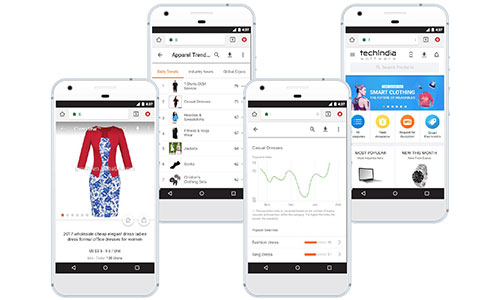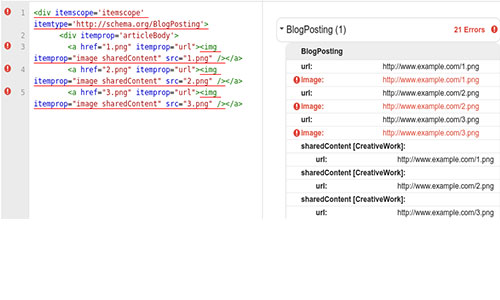For years people in the SEO world have been following a myth that Google gives an “Authority” score to a website.
SEO webmasters have always followed the golden rule that Google ranks websites based on certain parameters and based on how a website actually ranks on these parameters, it assigns an “Authority” score to the website.
What are these parameters that people believe impact the “Authority score” of a website?
Webmasters believe that these parameters normally comprise:
– Website content
What is the quality of content? Is it relevant, high quality and fresh? or is it plagiarized, low quality and copied from other sources.

– Freshness
This pertains to the Google Freshness algorithm that provides emphasis on value of recentness of content related to areas like latest news, events, politics, celebrities, trends and more. The purpose here is to address the user’s intent to want to know the latest information.

– Backlinks
Backlinks, especially from high ranking sites. To this day, backlinks remain one of the strongest ranking signals in Google’s search algorithm and lead to organic traffic growth.

– Mobile First approach
This approach involves designing website starting first with a mobile version and then adapting it to larger screens.

– Page Speed
Page speed measures how fast the content on your page loads. The higher the page speed, the higher the Google rank.

– Schema code
The schema code is a must for every website as it helps search engines understand the information on webpages and provide richer results.

– Brand Power and Social Signals
A brand’s social media “voice” defining it’s image and its social signals on platforms such as Facebook, Twitter, LinkedIn and Reddit etc.

Keeping these above parameters in mind webmasters have always tried to ensure that their websites come good and achieve higher rankings in search engine results.
Debunking the myth
While webmasters are not wrong in their approach and it is true that the above parameters do play a significant role in impacting a website’s rank, the fact remains that there is no “Authority” score given by Google to rank a website. This has been reiterated by experts that Google has not built any methodology or metric to measure the authority of a website.
This is quite contrary to the perception of most webmasters who have attributed the increase or decrease in their website traffic to the rank or domain authority of their websites.
What is done by Google?
As per Webmaster Trends Analyst John Mueller, ““In general, Google doesn’t evaluate a site’s authority. So it’s not something where we would give you a score on authority and say this is the general score for authority on your website. That’s not something we would be applying here.”
Google does have quality rater guidelines that contain a section on evaluating authority of a website, but these quality raters do not evaluate websites on an individual basis.
In other words, Google quality raters will not look at a site and assign an “authority” score to it just on the basis that it fulfills certain parameters mentioned above that make it appear to be authoritative.
Who should rate a site?
As per John Mueller, webmasters should actually get their sites evaluated by none other than actual users (current or potential) of the site. These folks are the best to be asked to share their feedback. Their perception of the site’s authority matters the most.
This is usually most effective when users compare sites in the same niche and share feedback on the positive and negative elements that they come across during their evaluation.
What do the ratings imply?
If the users feel that they can trust the content of the website, then this is valuable feedback on whether the site is authoritative. On the other hand, if users are unsure about the contents of a site and are reluctant, then this also feedback for the webmasters about the authority of their website.
More Resources:
Best Ecommerce marketing ideas to boost your online sales
Top 6 Latest WordPress Web Development and Design Trends Of 2019

